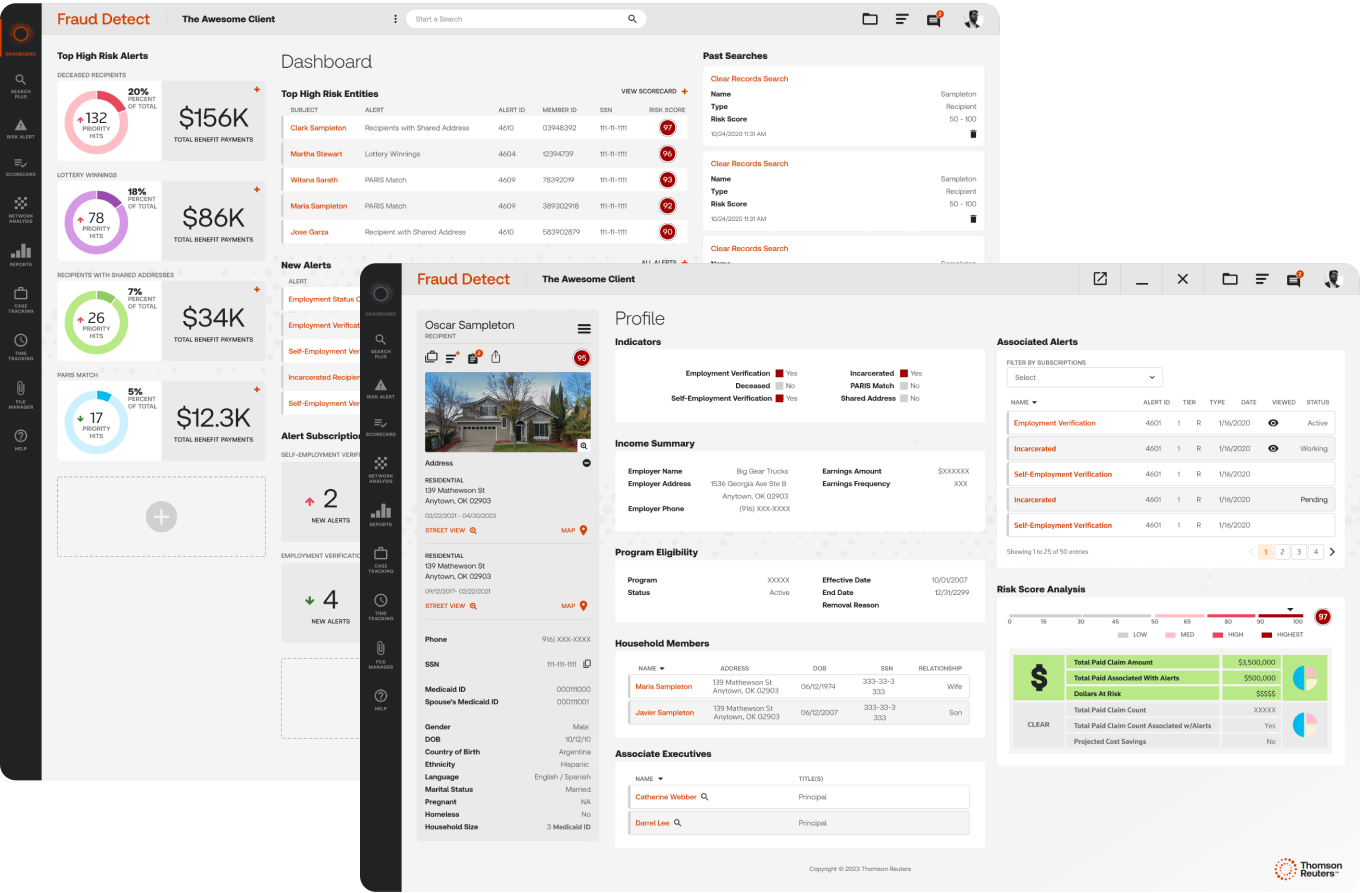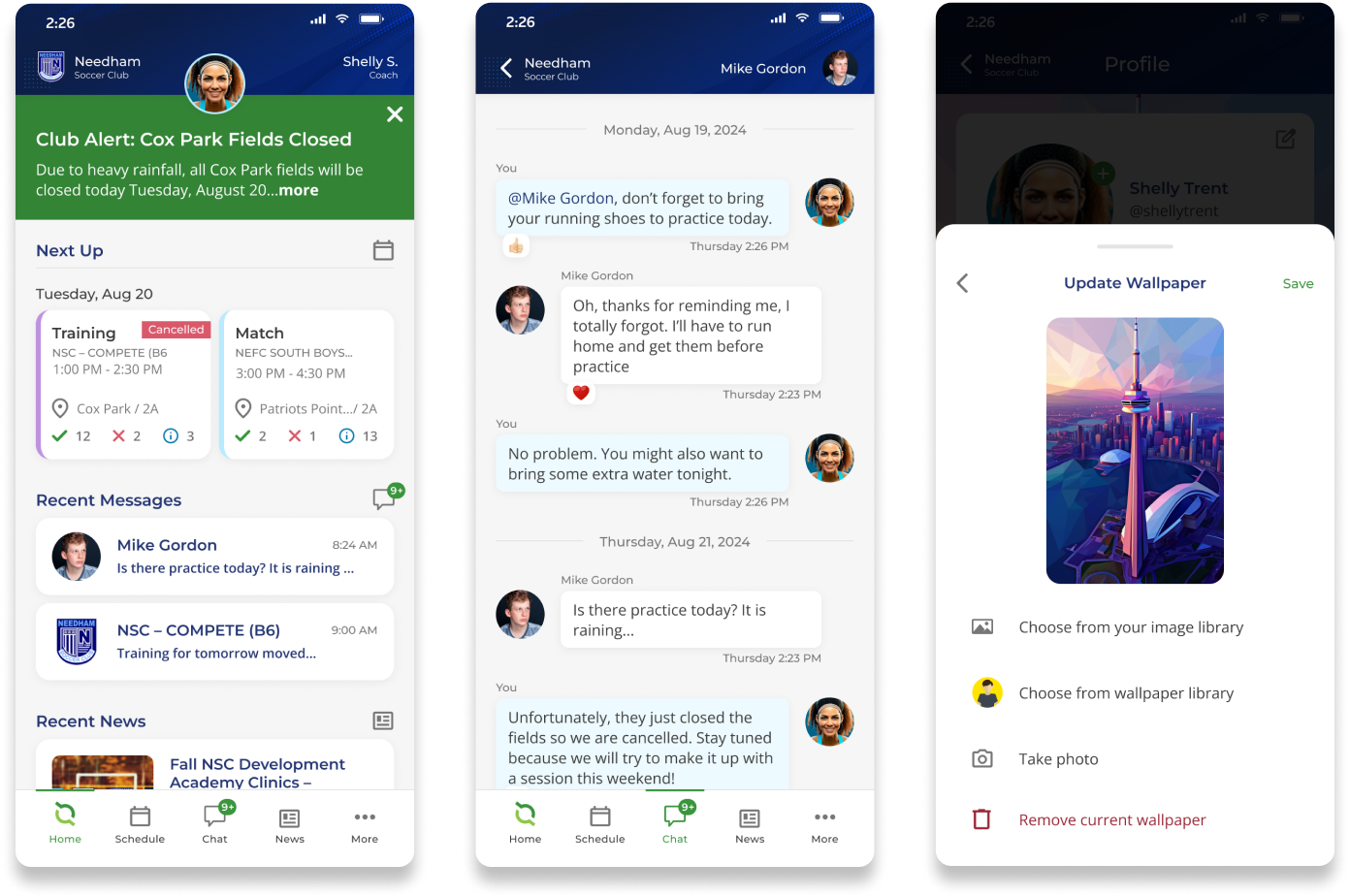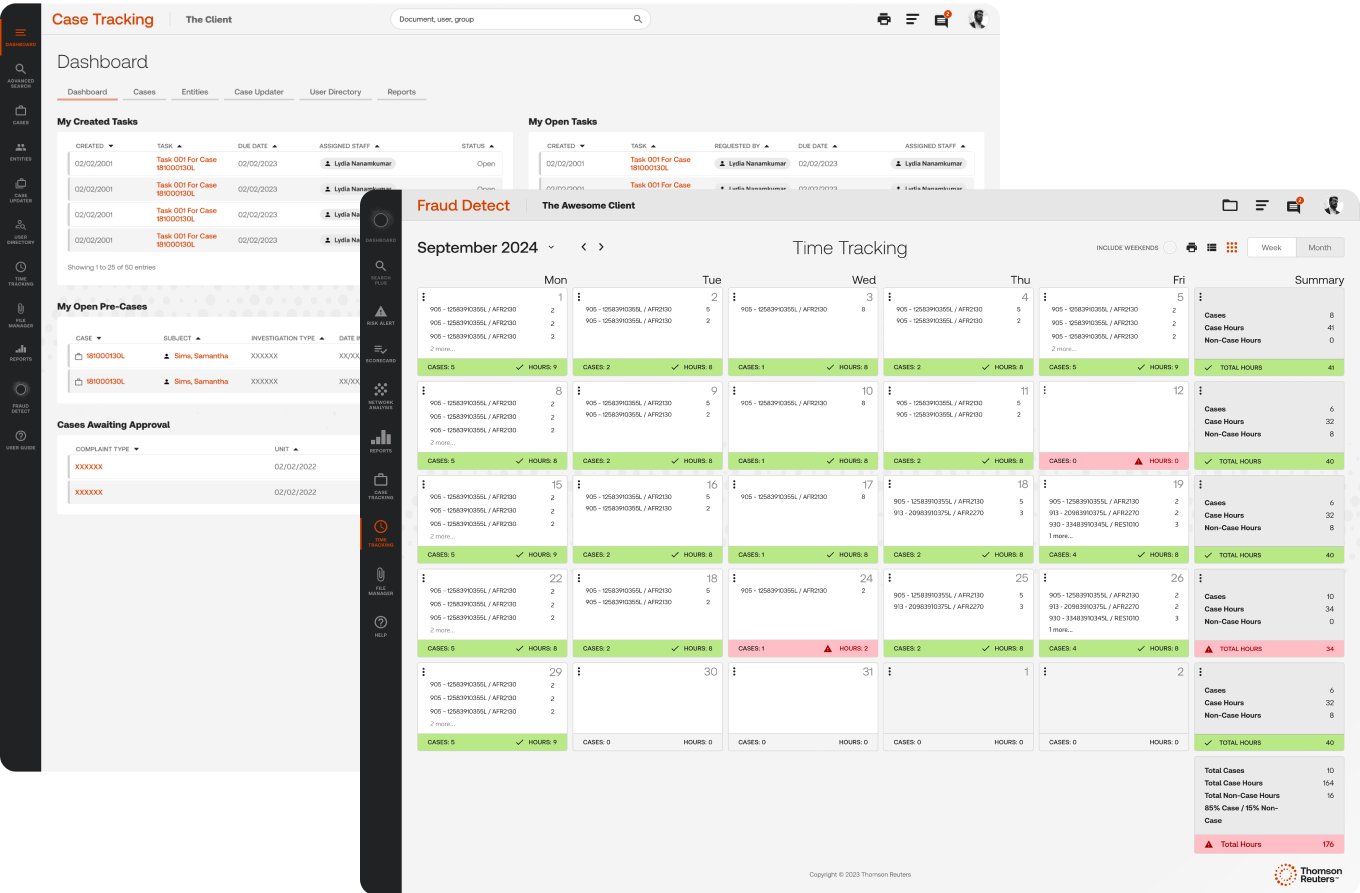

"Aaron has a unique talent for translating complex work flows into intuitive and user-friendly solutions. His ability to understand both the user’s needs and the business goals is outstanding, making his work truly impactful for project success."

Thomson Reuters is a global AI and technology company empowering professionals with trusted content and workflow automation. Fraud Detect utilizes expert machine-learning technology for government programs in Healthcare, SNAP, and Unemployment.
The application initially functioned more like a website than an interactive product application. Its UI suffered from inconsistencies, including mismatched font families and sizes, non-brand colors, and inadequate contrast, resulting in non-compliance with WCAG/ADA accessibility standards. Additionally, the UX varied across the product suite, lacking cohesion, confusing users. Fraud Detect also needed to cater to diverse client verticals, each with unique requirements.
Addressing these challenges involved remapping and simplifying user flows, conducting user interviews, collaborating with SMEs, and months of in-depth user research to understand how the product was used—and underutilized. I traveled across the country to meet with clients, observing firsthand how they used—and didn’t use—the application. From these insights, I developed user personas and documented pain points and opportunities for improvement to guide our team’s development efforts.
Throughout the design process, I collaborated closely with SMEs, BAs, developers, executives, and clients. I created new user flows, wireframes, and building interactive prototypes to test interactions and gather valuable user feedback. This approach led to a smooth rollout, with clients feeling engaged in the redesign process and excited for the much-needed application update.
The new UI and UX significantly streamlined workflows and reduced administrative overhead, delivering millions of dollars in ROI for state agencies nationwide. The new user experience featured a dashboard with actionable intelligence designed for both analysts and investigators. These enhancements drove over a 50% increase in customer renewals, reflecting the Fraud Detects’s effectiveness and value.
Fraud Detect identified $50 million in overpayments, resulting in $18.7 million in recoveries by the Medicaid Inspector General. The system was deployed to thousands of government professionals across various state and federal agencies nationwide. The new design and user experience also played a key role in securing millions of dollars in government contracts across the country.
My first step was to interview the managers, investigators, and analysts, and learn how they were using Fraud Detect day-to-day, which products within the suite they used, and how often. I also watched how each users interacted with the app and its tools to better understand and empathize with the needs of the different user types and what issues they shared together to improve their experience, by improving the UX of the product suite.
Disclosure: I am still working on putting this case study together, as I no longer have access to the research, user flows, wireframes, and some of the original designs. However, here are a few screenshots of the product after our first role out of the new UI/UX.
Prior to Thomson Reuters’ acquisition of Pondera Solutions, I designed a comprehensive design system and color library. Post-acquisition, I rebranded this system to align with Thomson Reuters’ branding, incorporating additional colors to enhance the new app’s design system.


GotSport (GotSoccer) is the leading provider of soccer software in the USA. They have been developing tools to help get players on the field since 1996, and help make things simple and easy for the sports community.


DHCS provides Californians with access to affordable, integrated, high-quality health care, including medical, dental, mental health, substance use treatment services and long-term care. DHCS funds health care services for more than 15.4 million Medi-Cal beneficiaries.